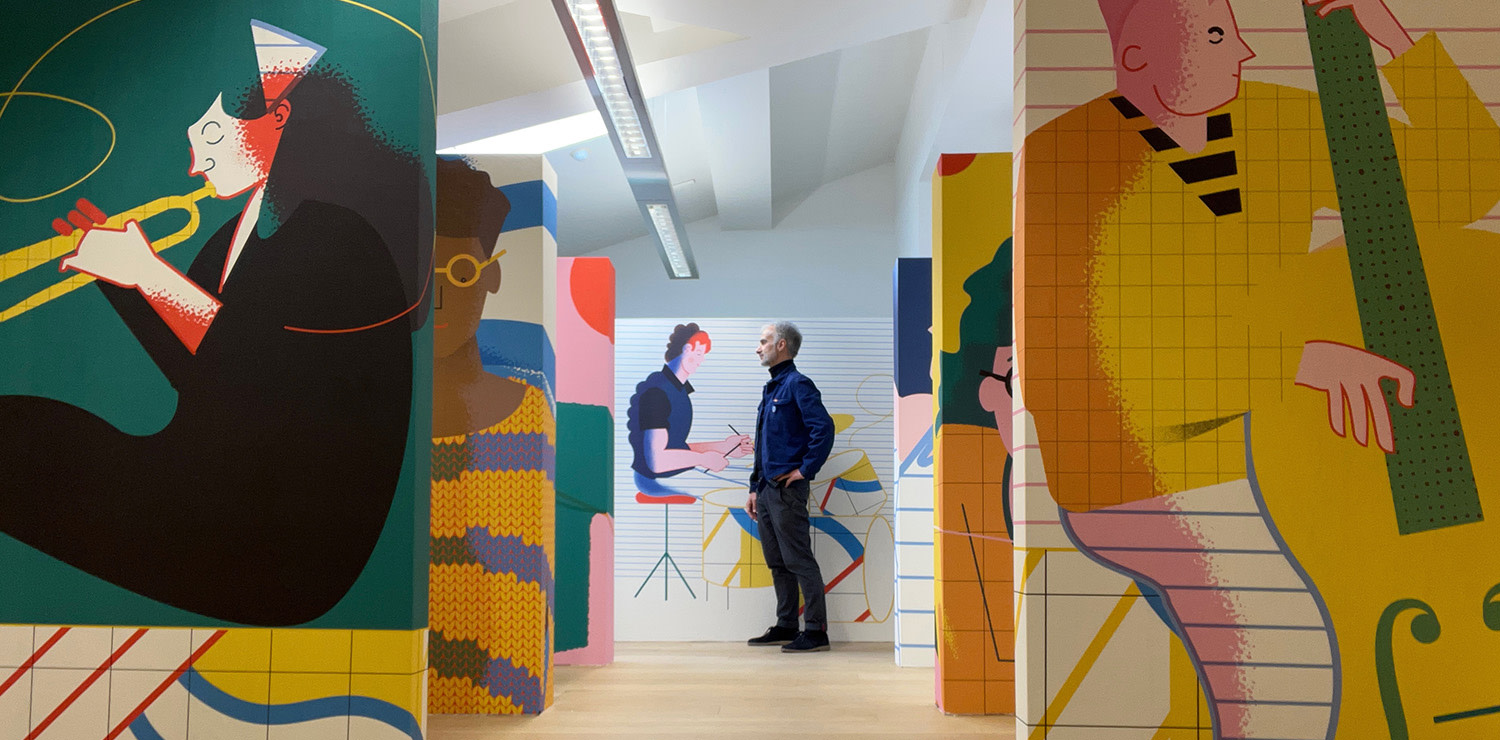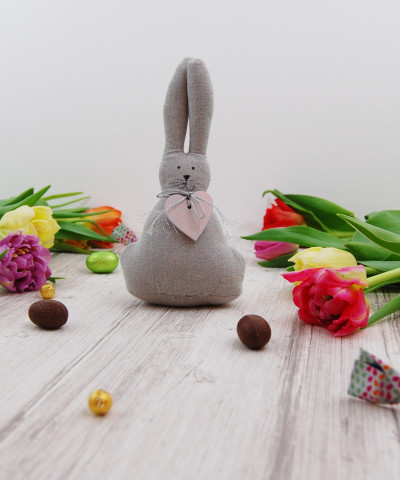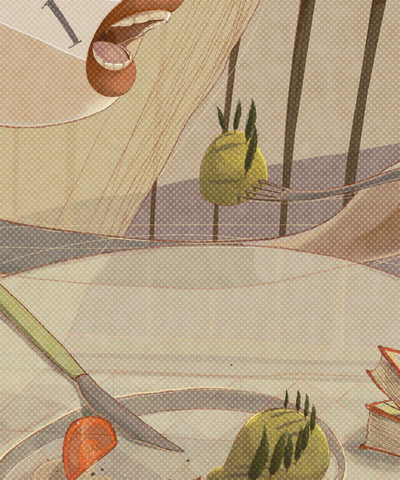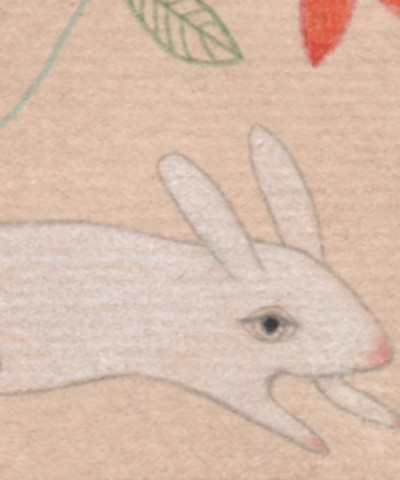Francesco Zorzi and his Florence
A tour of the city in the company of the Florentine illustrator
He is one of the leading new generation Italian illustrators and visual designers. Francesco Zorzi expresses his creativity in uptown New York City and Florence, collaborating with companies and institutions, but also international newspapers and magazines including Monocle, The Wall Street Journal, and Architectural Digest, and with La Stampa in Italy.
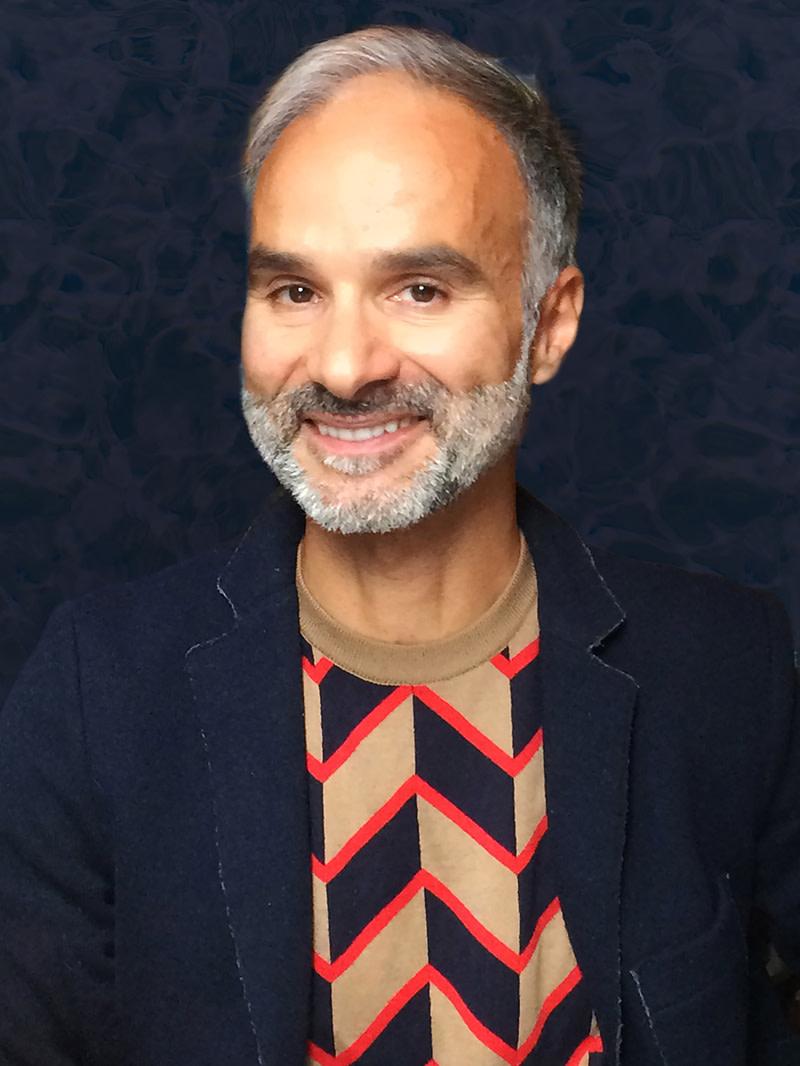 Francesco Zorzi
Francesco ZorziLürzer’s Archive has included him among the 200 Best Illustrators Worldwide and he featured in illustration guru Steven Heller’s two anthologies, Freehand, new typography sketchbooks and The illustration idea book. Inspiration from 50 masters.
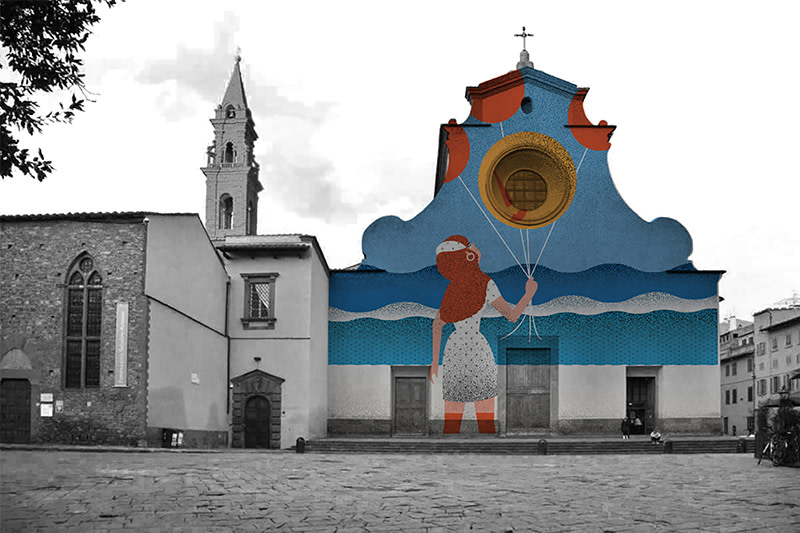 An animated illustration by Francesco Zorzi for the façade of the Santo Spirito church during the F-Light Festival
An animated illustration by Francesco Zorzi for the façade of the Santo Spirito church during the F-Light Festival He curated all the corporate illustrations for New York’s longest running summer festival, Lincoln Center Out of Doors 2018. Among his projects for Florence, one of the most striking was Dimora Luminosa - animated illustrations for a looped projection on the façade of the Santo Spirito church during the F-Light Festival. Having grown up in the Seventies surrounded by illustrated books and comics, his unmistakable works focus on the essentiality of shapes, on clean silhouettes filled with bright and unnatural colour.
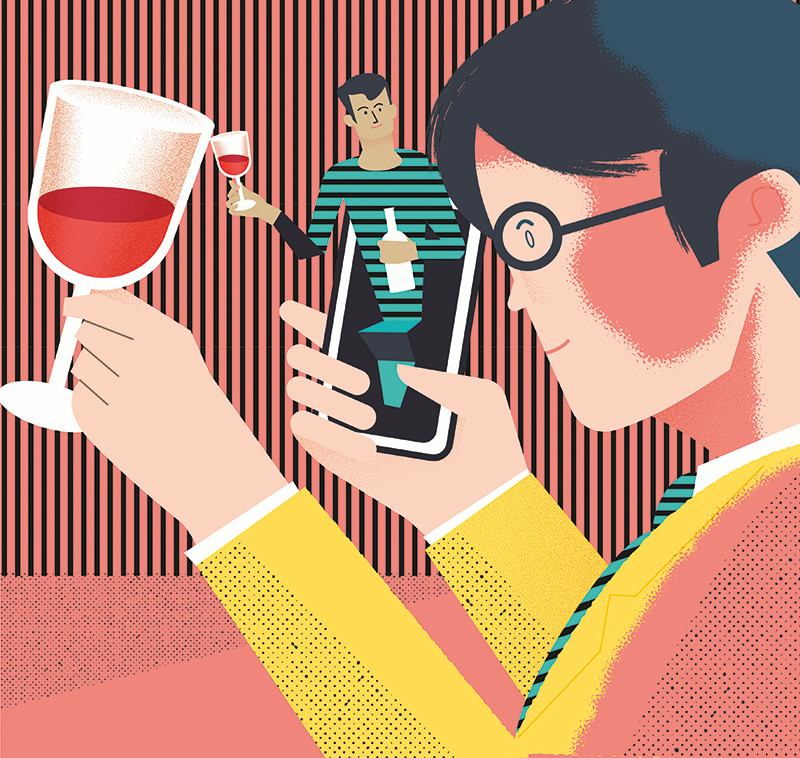 Illustration by Francesco Zorzi
Illustration by Francesco Zorzi Whenever he can, he leaves his studio in the heart of Florence, between the Medici Chapels and Piazza del Duomo, gets on his bike and heads out on the roads that lead to the hills that encircle the city, because “the true beauty and spirit of Florence can be grasped from here, as it lets you experience and understand it only if you see it from the outside, from above. It is a city that is only possible if you continue to explore it looking for other points of view”. An example? “Go up to Pian dei Giullari from via di Belvedere, then take via San Leonardo and then go along via di Giramonte”. Where do you go to get to know the most creative and youngest Florence? “The Sant’Ambrogio district or the Diladdarno (left bank of the Arno) area. From the point of view of ‘creative’ energies, spaces like Collab, in the Student Hotel, and Manifattura Tabacchi come to mind, meeting and sharing places where there are also new artisan shops, such as SuperDuper hats”.
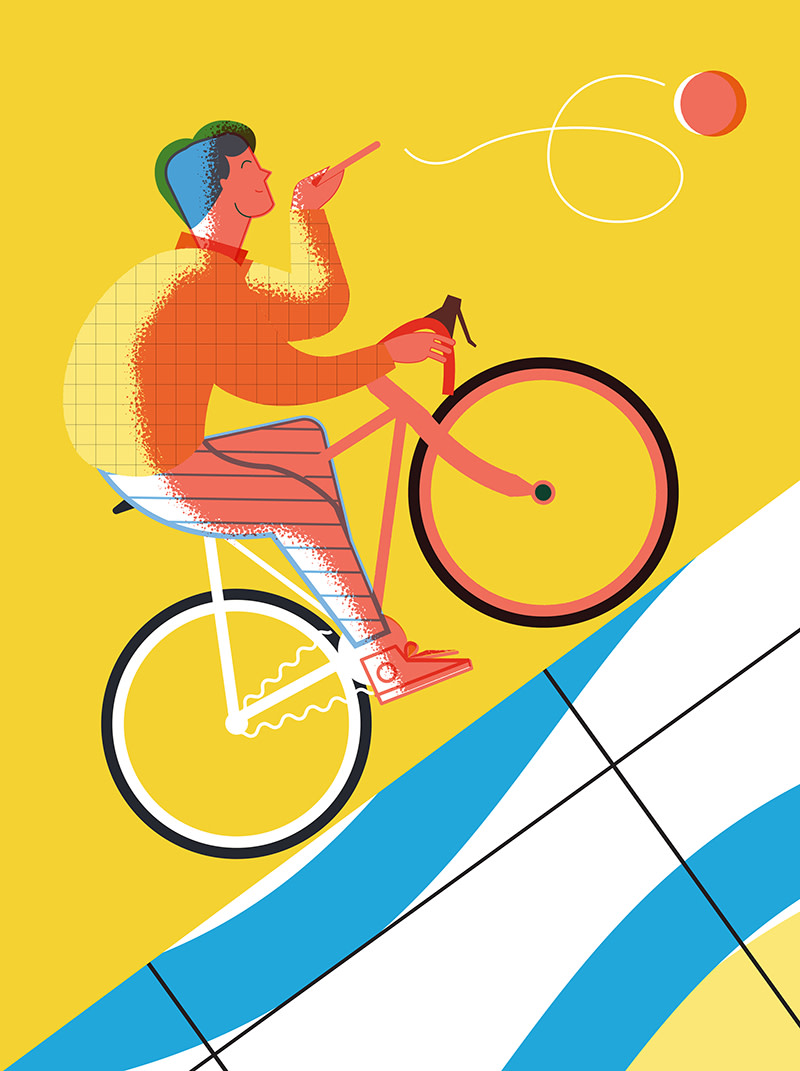 Illustration by Francesco Zorzi
Illustration by Francesco ZorziShopping food & wine: addresses not to be missed
Vintage
Ub, vintage and modern antiques in via Conti. A chaotic and visionary landmark (with an archive of wallpaper from the Thirties onwards).
Records
Twisted record shop in Borgo San Frediano specializing in vinyl jazz records.
Books
Todo Modo in via dei Fossi. Bookshop, coffee bar, wine shop, Todo Modo is many things (it also has a spin-off, a bookshop of illustrated books on the other side of the river, coincidently called Di Là).
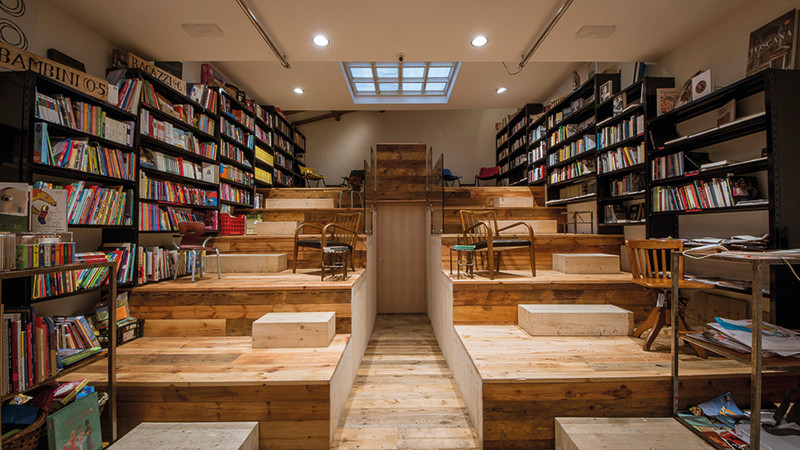 Libreria Todo Modo
Libreria Todo ModoIt is a great Florentine enterprise, very active in the cultural field (they were among the promotors of Testo, the Florence Book Fair).
Fine Arts
Zecchi in via dello Studio. a temple of fine arts, with everything needed for drawing, painting and illustrating. A shop that seems to belong to another age.
Food
Formaggioteca Terroir (French and Italian wines and cheeses from small producers), a small shop and wine bar in via dei Renai, in San Niccolò, a quarter that is still authentic.
Cafés
Procacci in via de’ Tornabuoni. It’s not exactly an historic café, it began as a deli (its rolls with truffles are a not to be missed experience), but nowadays it has many souls, including that of a café.
Restaurants
As well as the classics, Cibrèo, Santo Bevitore, Da Burde, Io osteria personale and Gunè, there are two that are particular favourites of mine for their comforting, friendly atmosphere.
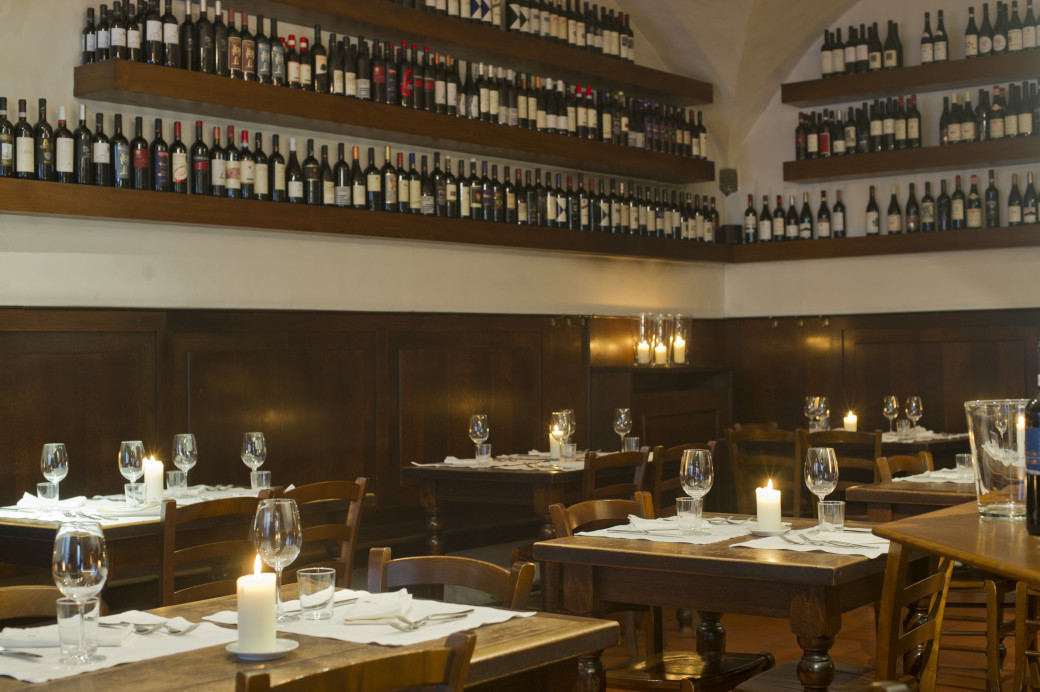 Santo Bevitore
Santo Bevitore The first, in homage to the spirit of the city, is definitely Sabatino, just outside the San Frediano gate. A family run trattoria that is a veritable local landmark, equally popular with both old and young.
The other, also by now an historic place, is Ruth’s, the kosher restaurant next door to the synagogue, another significant reference point for the city, a space that is a crossroads of humanity, where the atmosphere is “naturally” international.
5 places not to be missed
1. The hills around the city
“An ensemble of places, a path made up of many paths to grasp the true beauty and spirit of Florence as it lets you experience and understand it only if you see it from the outside, from above”
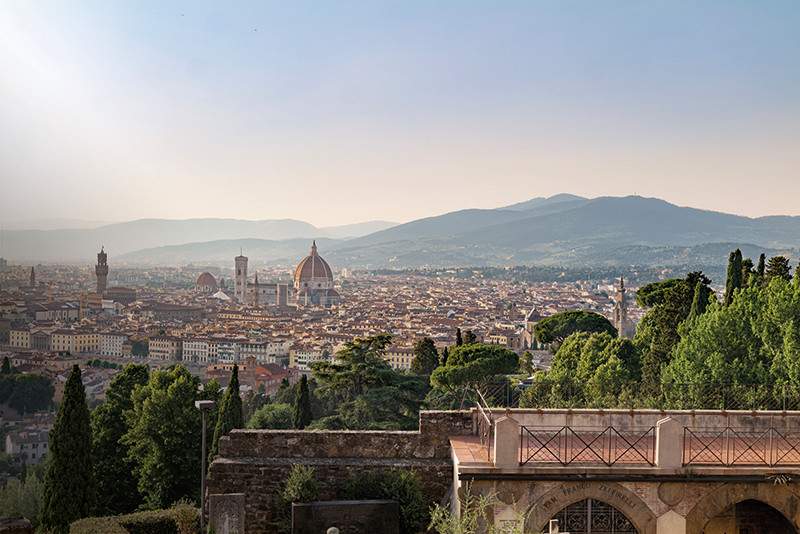 A magical view of Florence from the hills that surround it like a ring. In particular, this viewpoint is located near the Basilica of San Miniato (ph. Lorenzo Cotrozzi)
A magical view of Florence from the hills that surround it like a ring. In particular, this viewpoint is located near the Basilica of San Miniato (ph. Lorenzo Cotrozzi)
2. The Pazzi Chapel
“It overlooks the first cloister of the Basilica of Santa Croce. It is Brunelleschi’s masterpiece and one of the most beautiful examples of Renaissance architecture”
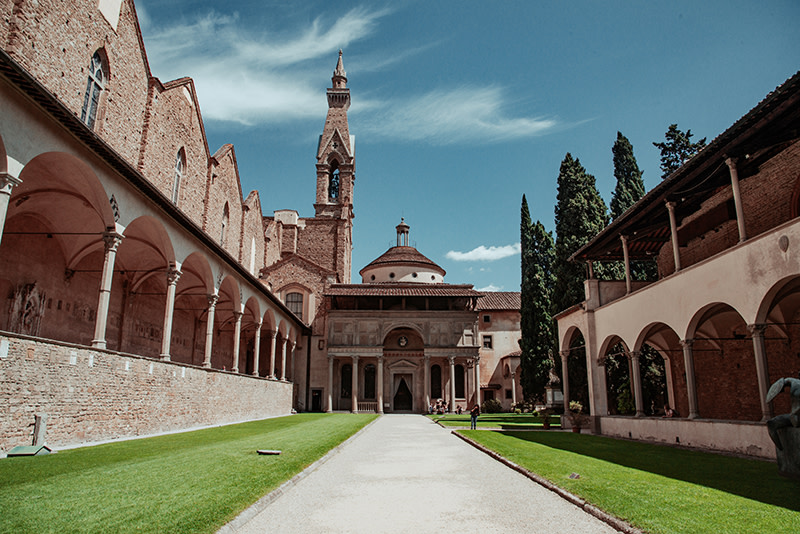 The Pazzi Chapel
The Pazzi Chapel3. The gardens
“The Boboli and Villa Bardini gardens are veritable multiple and multiform spaces to explore. The rose garden is a living space where I often take refuge”
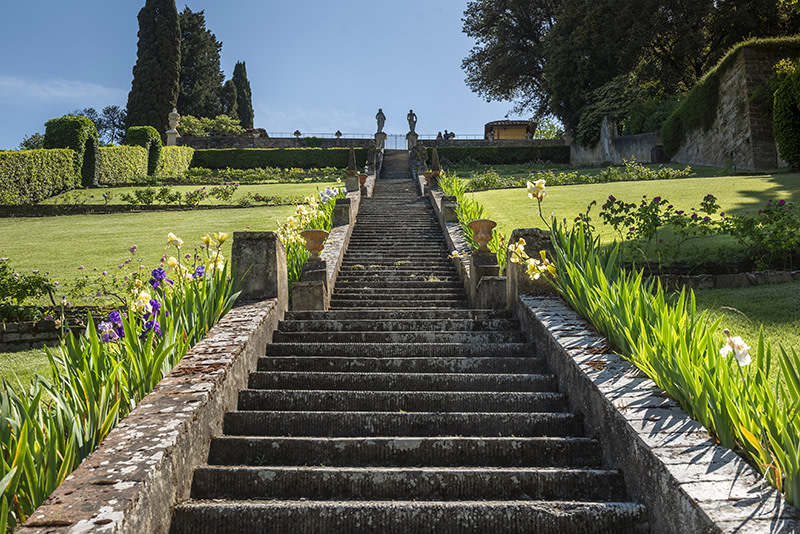 Villa Bardini ph. Pasquale Paradiso
Villa Bardini ph. Pasquale Paradiso
4. The Rucellai sepulchre
“Leon Battista Alberti’s Renaissance masterpiece. A miniature building, its composition is an unending source of inspiration”
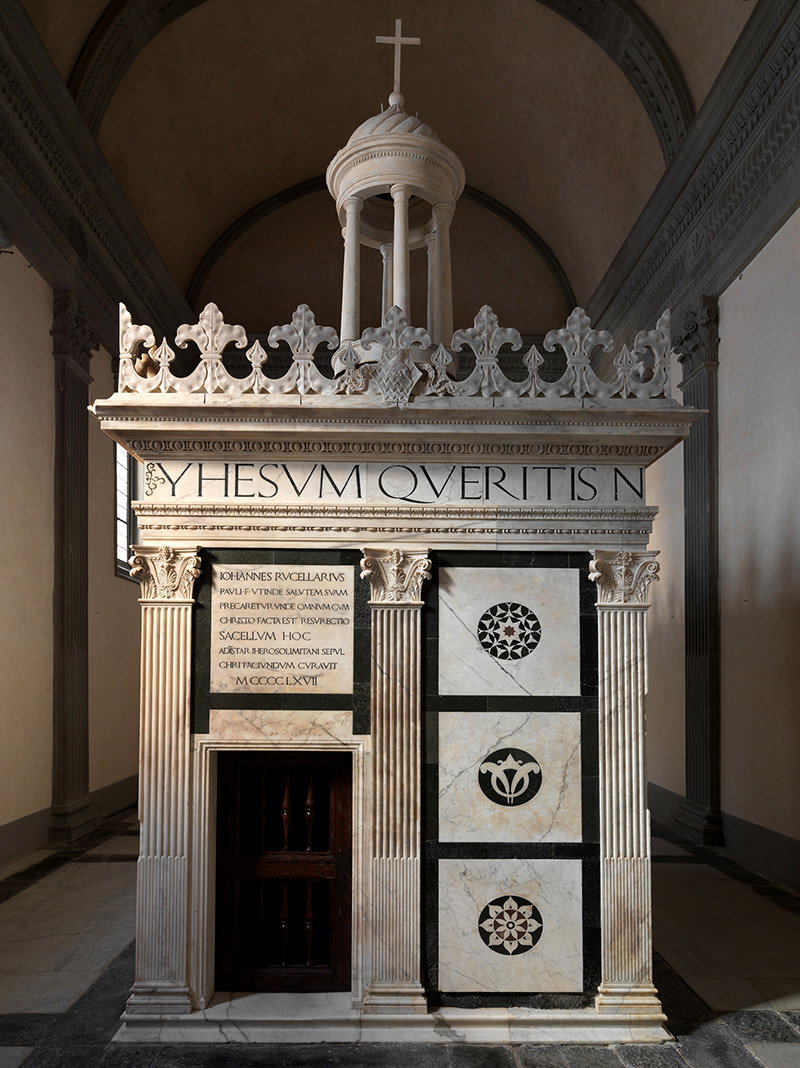 Cappella Rucella Alberti - ph. Dario Lasagni
Cappella Rucella Alberti - ph. Dario Lasagni5. Cenacolo (or Last Supper) at Sant’Apollonia
“I go often, Andrea del Castagno’s frescoes are a thing of wonder”
 Cenacolo Sant'Apollonia
Cenacolo Sant'Apollonia 





